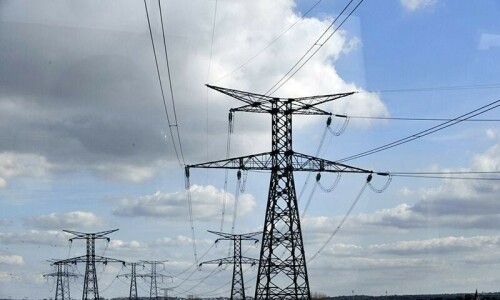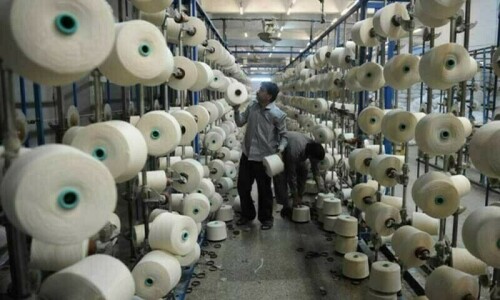ISLAMABAD: With textile exports registering a decline in June, exporters have asked the government to reconsider its agreements with Independent Power Producers (IPPs) to salvage what’s left of the ailing industry, claiming that the current cost of electricity is too high, due to capacity charges.
The need to revise these agreements was raised by former caretaker minister for Commerce and Industry Gohar Ejaz, who criticised the government for collecting Rs24 per unit from consumers in IPP capacity payments. Pakistan Textile Exporters Association (PTEA) Patron-in-Chief Khurram Mukhtar also raised the issue and called for a revision.
The issue of IPP capacity payments arose as a result of the rise in consumer power costs, sparking a heated debate within the business community.
“We are all sinking under the present Rs2 trillion capacity payments to 40 owners of these closed and partially operational IPPs,” Mr Ejaz told Dawn on Friday. He said that rising energy prices have affected industrial expansion, particularly in textiles and garments.
Former minister, textile exporters cry foul over ‘dormant’ IPPs receiving capacity charges
Mr Ejaz said that 53 IPPs are completely closed, but still receiving regular capacity payments from the government for not producing a single unit. He questioned the justification for such payments, which are collected from consumers and businesses.
In 2015, 13,000MW was consumed, and the capacity fee was Rs200bn with an installed capacity of 20,000MW. Mr Ejaz said that the current capacity payment was Rs2tr and that the consumption in 2024 still remains at 13,000 MW, with an installed capacity of 43,400 MW.
Mr Ejaz claimed that the same consumer is being charged ten times the capacity charges for the same units. He went on to claim that power is generated at Rs35 (including fuel charges of Rs10.60 and Rs24 in capacity charges) and distributed by Discos to paying domestic consumers at Rs60, yet the government still loses trillions of rupees.
He said the solution was to increase growth and invest in export-oriented industries, regretting that exports were not conceivable given the current high energy prices.
Expressing similar concerns over high prices of electricity for industries, Mr Mukhtar said that high energy costs were a major setback for the country’s exports and economy, directly hampering industrial growth. The current power tariff is almost twice the average faced by competing economies like India, Bangladesh and Vietnam.
PTEA Chairman Arif Mahmood Qureshi emphasised that the textile industry was committed to supporting the country but addressing issues like high power tariffs to reduce production costs was essential for the industry to become competitive.
Published in Dawn, July 20th, 2024














































